An open-source cloud management platform is a software solution that allows organizations to manage and monitor their cloud infrastructure, resources, and services using open-source technologies.

Overviews of the 7 Best Open Source Cloud Management Platforms
OPENNEBULA.IO

OpenNebula is an Open Source Cloud Computing Platform to build and manage Enterprise Clouds. OpenNebula provides unified management of IT infrastructure and applications, avoiding vendor lock-in and reducing complexity, resource consumption and operational costs.
- Deploy a front-end on VMware or KVM
- aunch OpenNebula clusters on AWS
- Explore the basic cloud operations
- Execute VMs and Kubernetes clusters
OPENSTACK
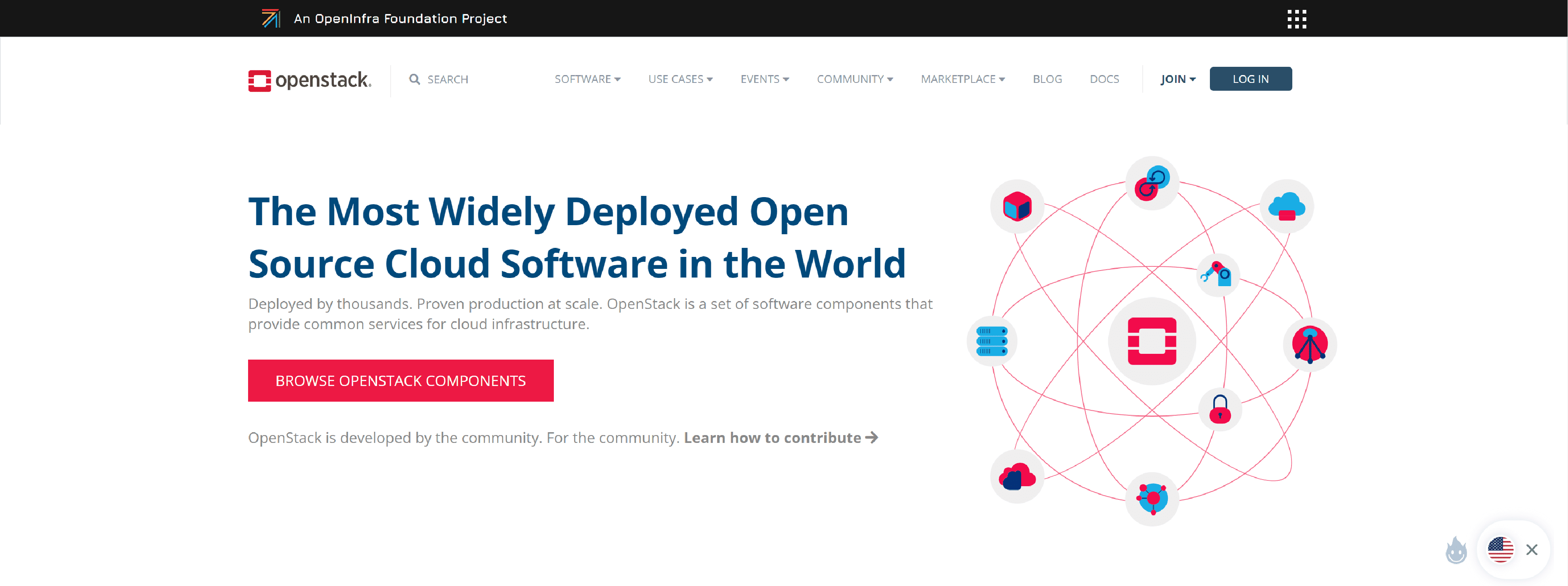
OpenStack is an open source cloud computing infrastructure software project and is one of the three most active open source projects in the world.
- Host your cloud infrastructure internally or find an OpenStack partner in the Marketplace
- Leverage one of the 180+ OpenStack powered public cloud data centers
- Telecoms and retailers rely on OpenStack for their distributed systems
VIRTENGINE
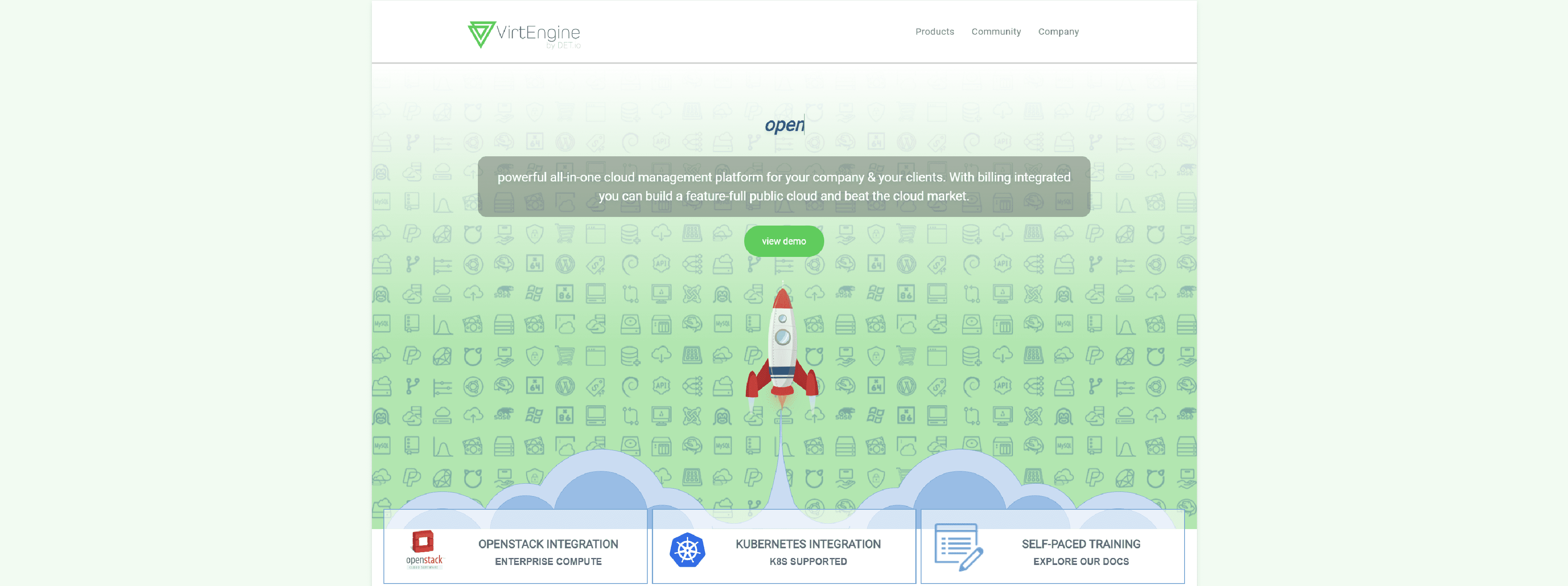
VirtEngine is a Cloud Management Platform software panel used to build Private and Public Clouds – OpenStack, Kubernetes, Docker, and many more Integrations.
- Unpack, configure your hardware to Cloud in seconds
- High Availability made affordable and easy
- Storage Solutions
- Full featured PaaS with replication, scalability, CI, and support for containers
- Host your compute nodes wherever you please
- Supports multi-geolocation setups
- Native WHMCS billing support
CLOUDFORET.IO
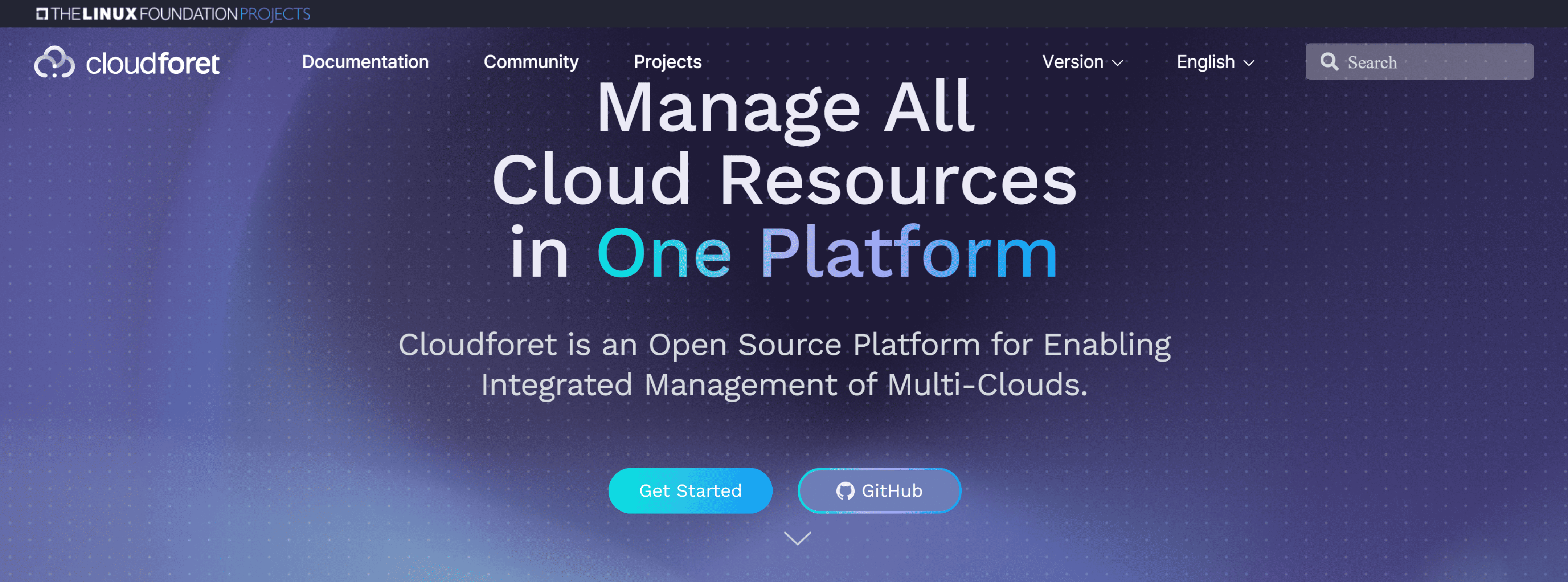
Cloudforet helps you manage multi-cloud environments and all your cloud resources & cost in ONE platform.
- Discover and Manage Multi-Cloud Resources
- Analyze Your Costs Easily and Optimize Resources
- Manage Your Cloud Resources and Accounts
WALDUR
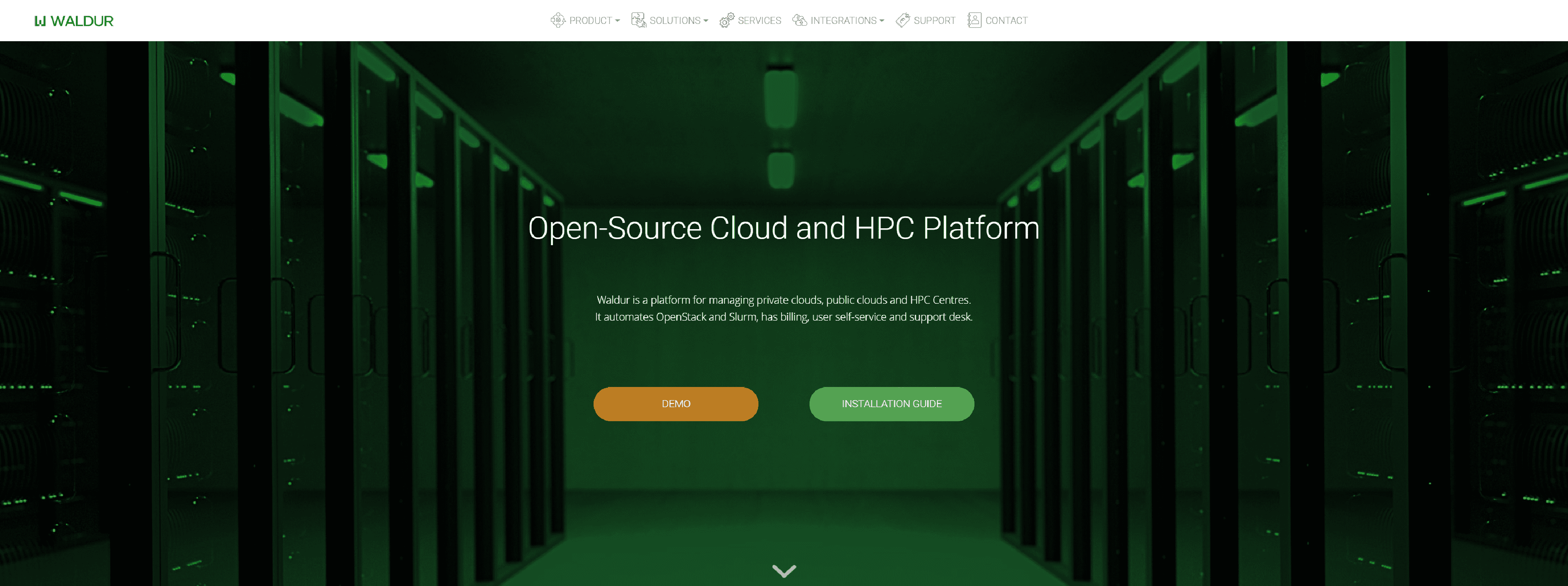
Waldur is a platform for creating hybrid cloud solutions. It allows building enterprise-grade systems and providing self-service environment for the end-users.
- High-level RESTful APIs
- Hybrid Cloud Management
- Team and Project Management
- Self-service
- Audit logs and Alerting
- Usage-based Accounting
- Integrated Helpdesk
- Analytics
- Professional Support
OPENMETAL.IO
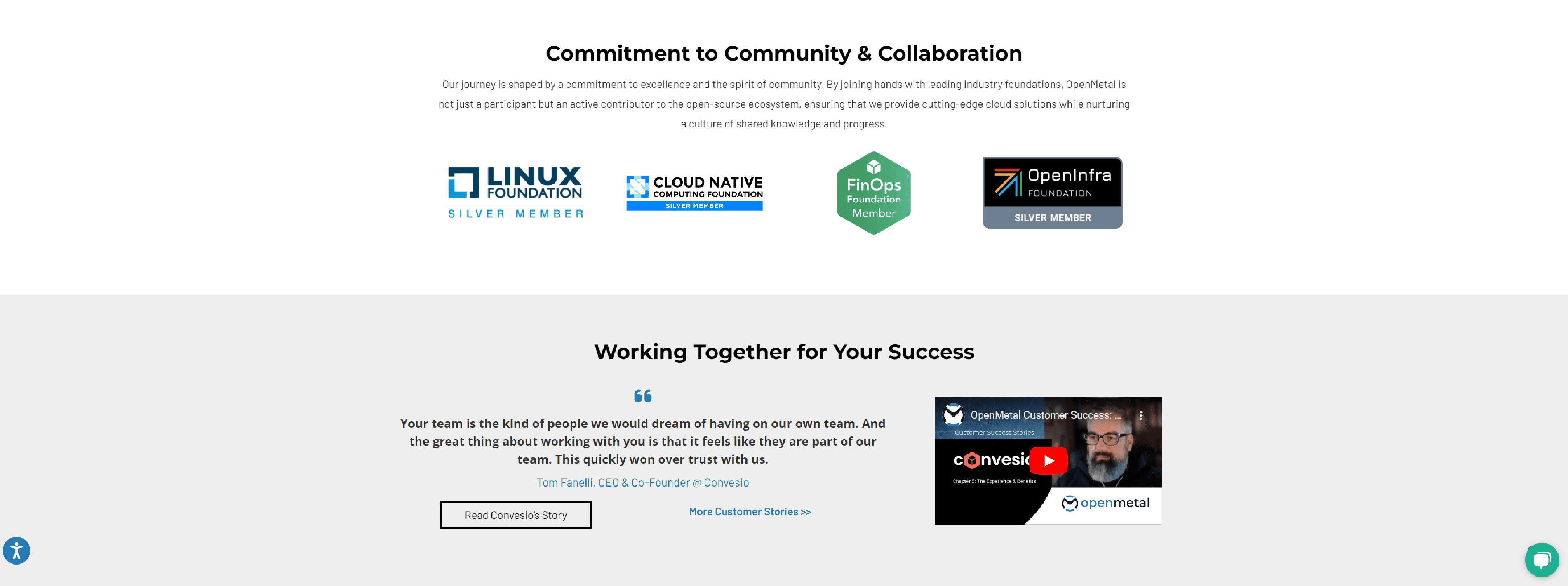
OpenMetal is a leading provider of open source cloud and private hosted infrastructure, fusing private cloud, public cloud, and bare metal.
- Launch your own hosted private cloud on a 3 server Cloud Core – all in 45 seconds
- The #1 cloud management system you love, delivered right now, root and all
- Support demanding workloads such as ClickHouse, Kafka, Hadoop, Spark, Cassandra, and more
- Large scale storage clusters for bulk object storage plus Block and Network File System
CLOUDCUSTODIAN.IO
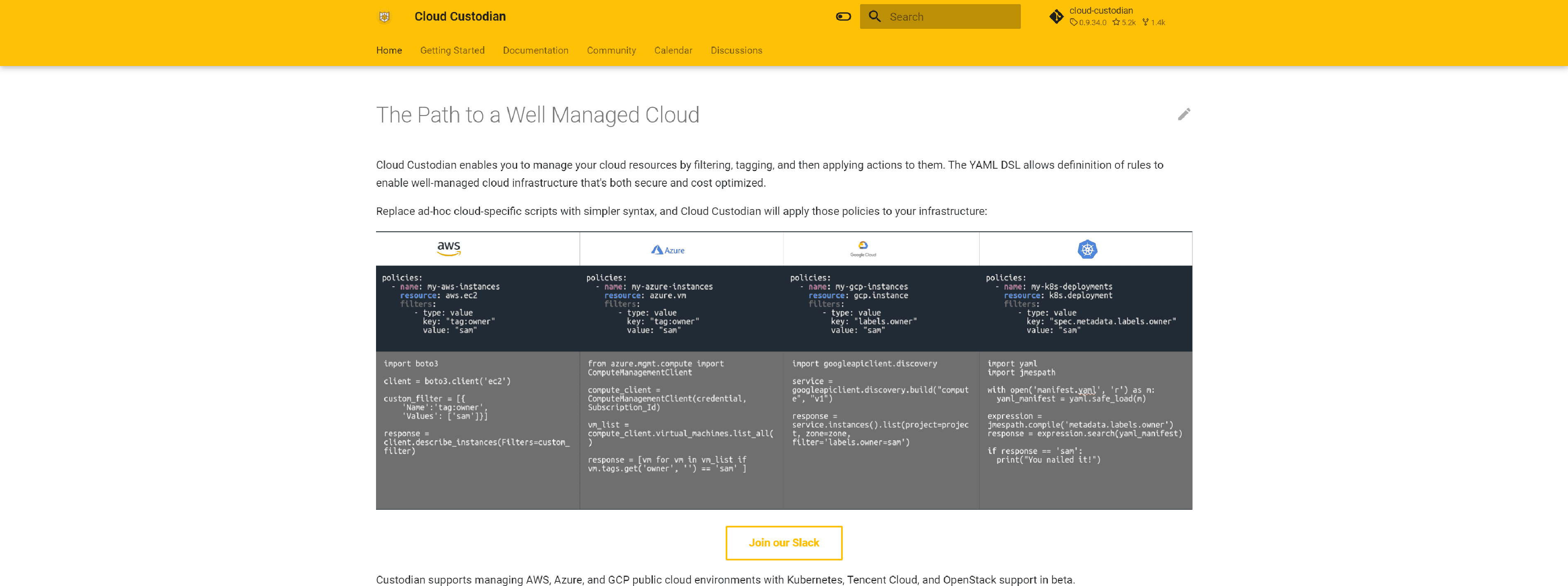
Cloud Custodian enables you to manage your cloud resources by filtering, tagging, and then applying actions to them. The YAML DSL allows defininition of rules to enable well-managed cloud infrastructure that’s both secure and cost optimized.
- Real-time Compliance
- Cost Management
- Shift Left
- Run Anywhere
- Open Source
- Simple DSL